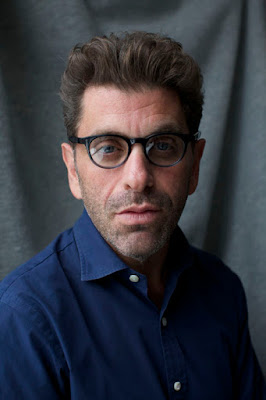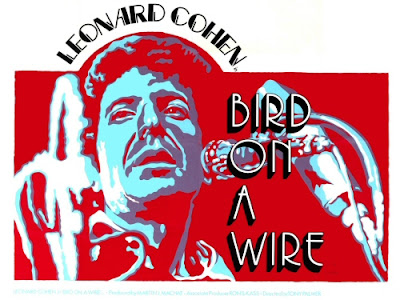Not a great film but one that is consistently interesting and often thought-provoking, THE KING offers, on one level, an intellectual experience something akin to viewing a splatter artist’s painting for the first time and out of all that color and form discovering a lot of fascinating connections. On another level – and done in an unusual manner but very well -- the movie is a smart bio-pic of Elvis Presley, as it moves back and forth in time and place until it has given us a surprisingly cogent account of his character and career.
At one point in the doc, the director himself (who makes a now-and-then appearance) allows that he isn't even sure what's he's doing here. By the end of the film, however, he has put together a compelling enough array of connections to make a pretty fair case. Mr. Jarecki sees Elvis' life, his rise and fall, as a kind of stand-in for America itself -- certainly for that elusive but so often remarked upon "American Dream."
Both Elvis and our country seemed to stand for something important and unusual. The country has now imploded, sinking into its own worst features and fears. Elvis did, too, though even in one of his final appearances, he managed to sit down at the piano and play and sing Unchained Melody like the great performer he could be and often was.
Jarecki wisely and movingly ends his film with this song, set against an array of fast, vast, nearly subliminal visuals that hit and highlight American history. It's impressive, as has been much of the lengthy movie itself -- which travels, via Elvis' own Rolls Royce (shown above, and which breaks down occasionally) across the country, east to west, with stops including Tupelo (Elvis' home town in Mississippi), Memphis, Nashville and the armpit/cesspool of the USA, Las Vegas.
Along the way we meet and hear from celebrities such as Ethan Hawke, Alec Baldwin, Ashton Kutcher and Public Enemy's Chuck D (shown below) and just-plain-folk: one of Elvis' longtime best friends, an ex-girlfriend (above) and the housekeeper who was with him at the end. What the latter have to say seems very bit as interesting as that of the former, though Mr. Kutcher does make a statement of about fame and talent that shows he's "woke" -- regarding himself, at least.
Not everyone here agrees with Jarecki's "take" on things (chief among these is David Simon, noted TV writer of The Wire and other shows), but the filmmaker seems perfectly OK with disagreement. This is part of what makes his film all the more interesting and acceptable. The connections he makes, ranging from easily accessible to pretty far afield, are nearly always understandable, even if you may sometimes nay-say.
We're treated to some good music along the way (Elvis', of course, and that of some others, shown above and below). By film's end, you'll have been made privy to a theory/thesis that should keep you on your intellectual and emotional toes, as well as to a Elvis bio-pic that -- depending on what you already knew about the legendary performer -- will make you both appreciate and lament this "king" all over again.
From Oscilloscope Films and running a lengthy but never boring 109 minutes, the movie, after opening in major cities over the past month, hits the South Florida area tomorrow, Friday, August 3. In Miami, look for it at the Bill Cosford Cinema and the Miami Beach Cinematheque, and in Palm Beach County at the Living Room Theaters of Boca Raton, and the Movies of Delray and Movies of Lake Worth and at the Lake Worth Playhouse. Click here to view all currently scheduled playdates, cities and theaters across the country.
























































